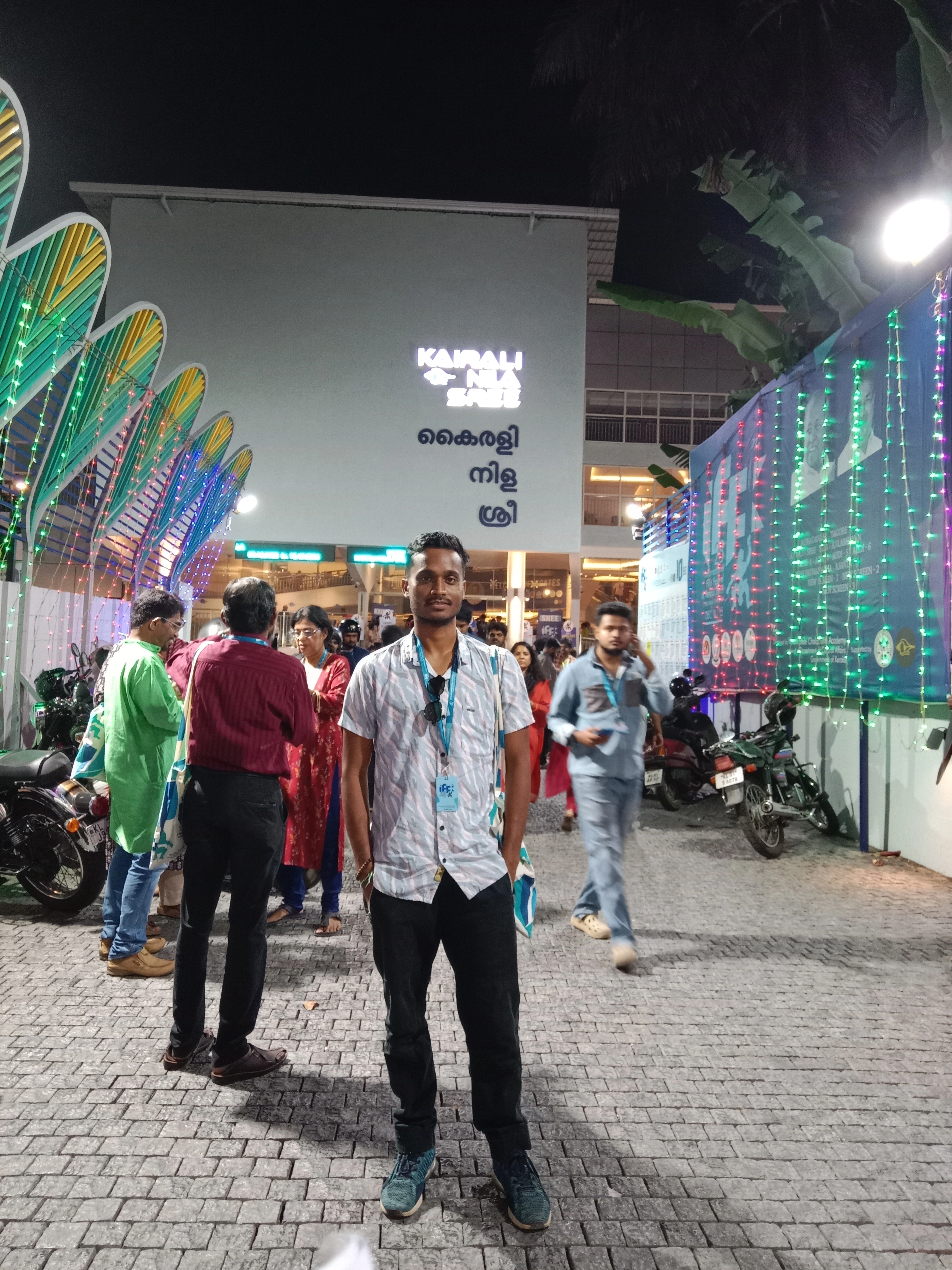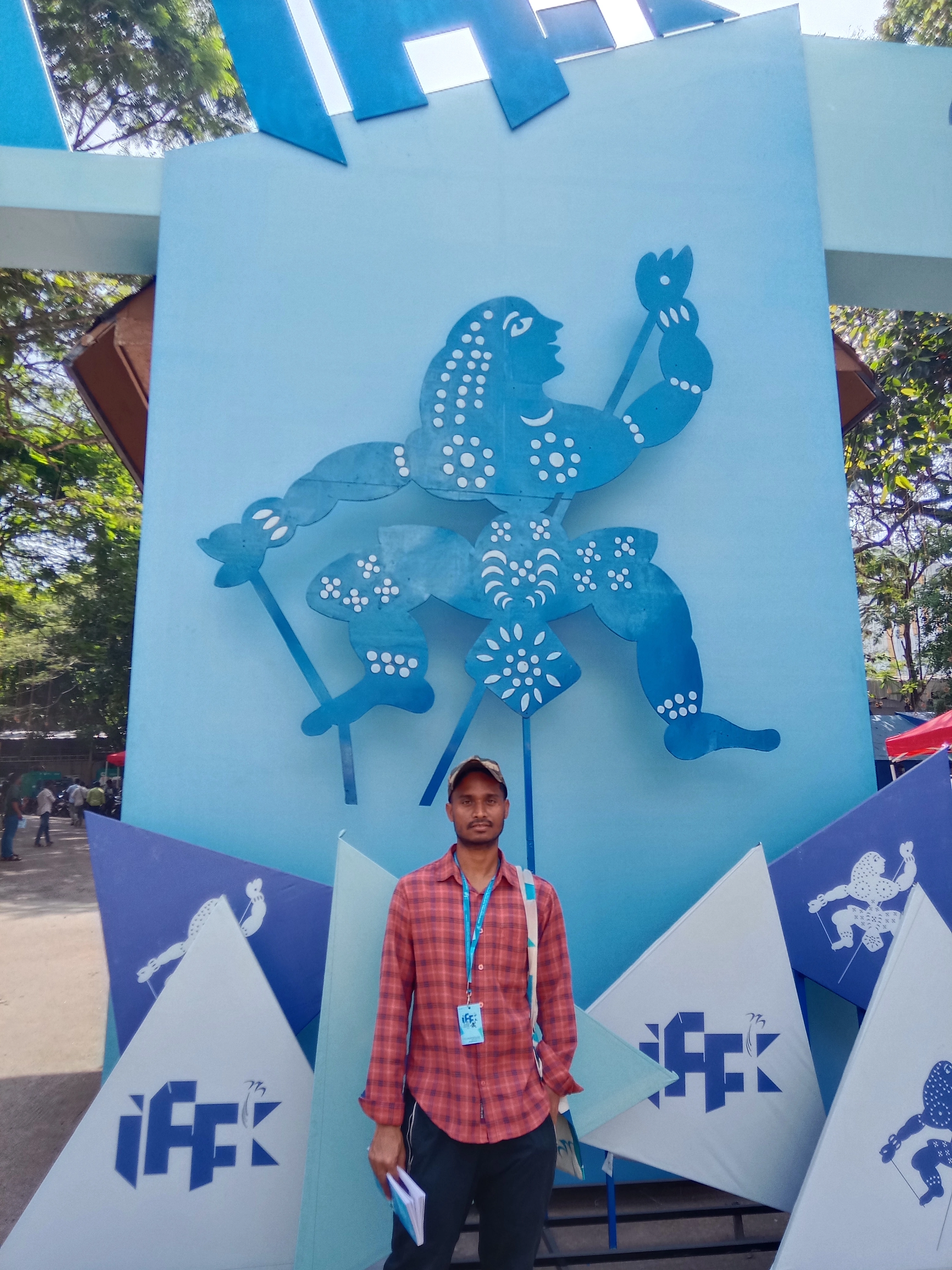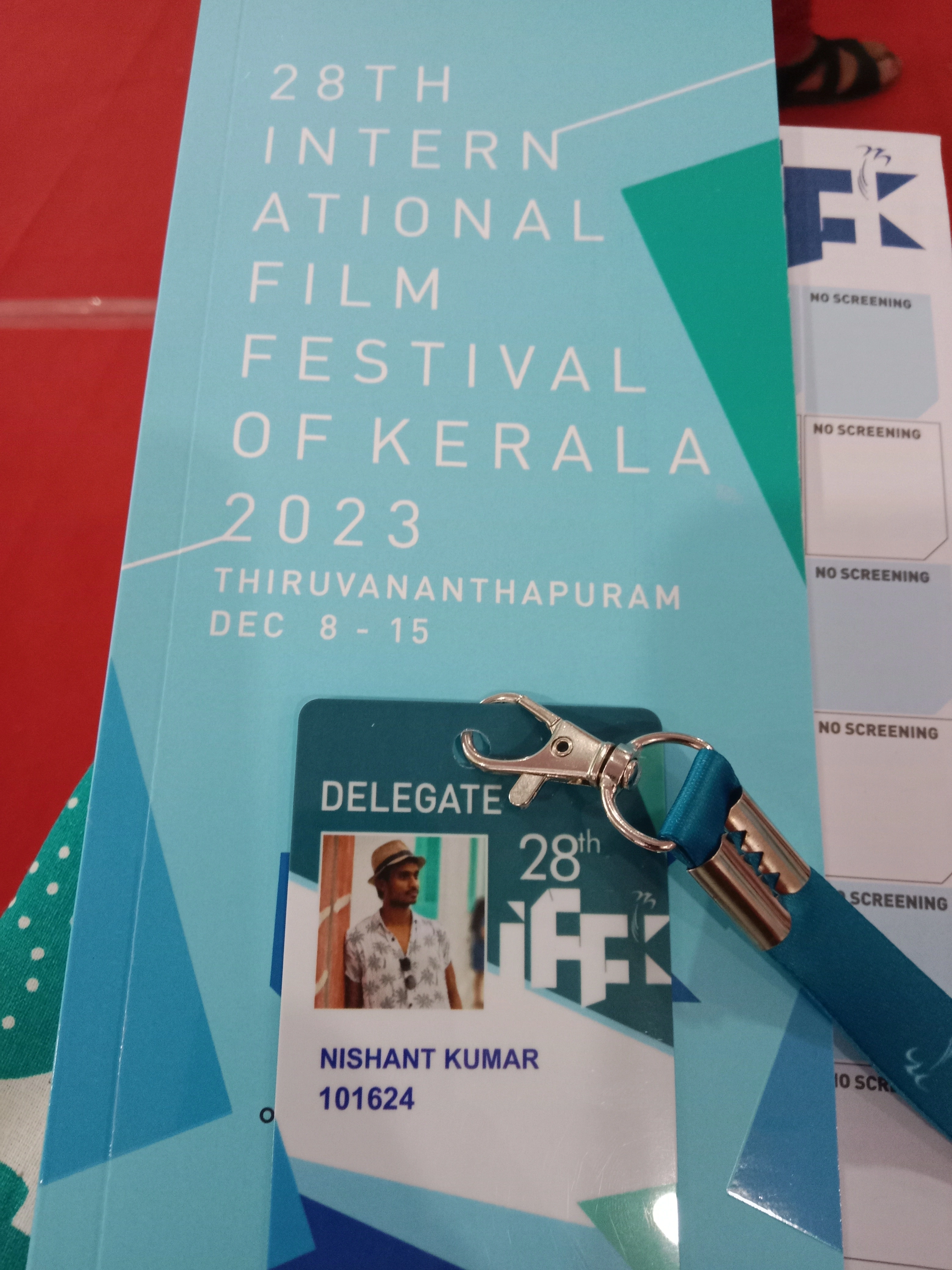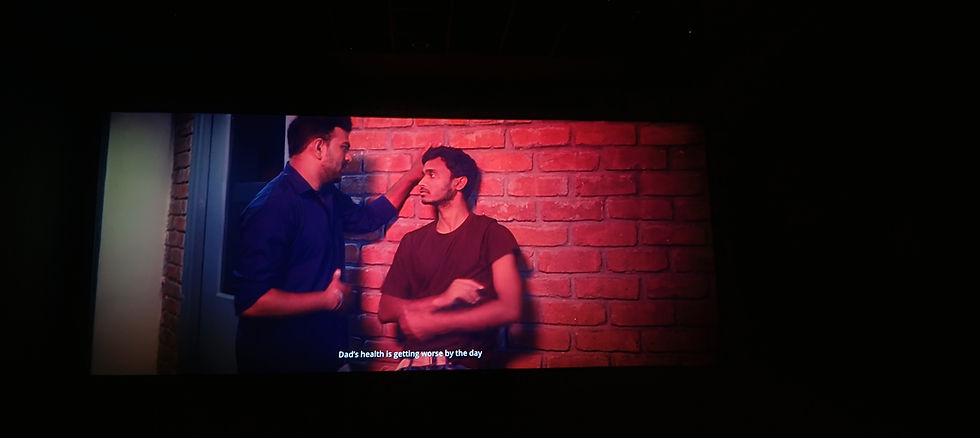Cinematic Diversity at the 28th International Film Festival of Kerala (IFFK’ 23) in Thiruvananthpuram.
- Nishant Dhanaanjayy
- Dec 17, 2023
- 4 min read
I had a great time at the 28th edition of International Film Festival of Kerala (IFFK’ 23) in Thiruvananthpuram. It was a great opportunity to catch some amazing movies from different countries and cultures. I was lucky that the festival dates coincided with my kalarippayattu training in Thiruvananthpuram, which is a traditional martial art form that I'm passionate about. My friend Krishanjali told me about the festival in advance, so I booked my ticket 15 days earlier. I knew it would be a busy schedule, but I was determined to make the most of it. I adjusted my movie-watching time according to my class timings. So, if my class was at 3 PM, I would watch two movies (9 AM and 12 PM), but if my class was at 7 PM, I would watch three movies until 6 PM. The only downside was that Thiruvananthpuram was 14 KM away from where I was staying in Balarampuram, so I had to commute a lot.
On the first day, I had to collect my ID card, bag, schedule sheet and brochure from Tagore theatre. I arrived after 9 AM, so I missed the first show, but then I went to Kairali theatre and waited until 12 PM for the next movie to start. That day, I only watched one movie and then left for the day to attend my kalarippayattu class. The festival lasted for eight days and by the end of it, I had watched 20 movies. Movies from Mexico, South Korea, America, Iran, Poland, Kazakhstan, Japan, China, Denmark, Saudi Arabia and India. It was a wonderful experience and I learned a lot from the films and the discussions that followed them.
I want to thank the curators who selected these movies. They did a fantastic job of choosing diverse and quality films. No matter what movie you pick, you will enjoy it. I wish I had more time to watch all the movies, but I had to limit myself due to other commitments. Still, the movies I watched were amazing. They all affected me in different ways. I realized that every country has its own challenges, issues and stories. Many of them are similar to ours. It expanded my worldview and understanding of cinema. I'm not exaggerating when I say that this event changed me and my perspective on cinema. Cinema is not just entertainment, but also education and revolution. It has the power to inspire, inform and transform people. I learned the true potential of cinema.
The Kerala government supported this event and I must say they are doing a great work for culture and cinema. The organizing committee did a great job too. They planned and executed everything smoothly. One of the best things about this event was the locations where the movies were screened. They were all close to each other, within 2-2.5 km radius. There were 8 locations with 14 screens with large seating capacity. Most of them were within 500 meters of each other. They also provided free buses that ran all day to all locations. You could book 3 movies every day using the IFFK website or app. You could book up to 70% of the capacity and the rest 30% was unreserved. The volunteers were very hard working and cooperative to the delegates.
I have to say that the audience of Kerala is awesome. They are film literate, meaning they understand and appreciate good cinema. They don't just watch movies for entertainment, they watch them for art. They know about different genres, styles, directors and cultures. They are not afraid of subtitles or foreign languages. They are open-minded and curious.
I had some great conversations with some of the locals who were also attending the festival. They were not film professionals or students, they had regular jobs or studies, but they had a deep passion for cinema. They knew about films from all over the world, not just Hollywood or Bollywood. They could quote famous lines, analyze themes and compare different works. One of them even finished my sentence when I was trying to mention Bong Joon-ho's quote about overcoming the barrier of subtitles. He also told me that he used to watch English movies without subtitles when he was a kid. That's how much he loved cinema.
The closing ceremony of the festival was also memorable. The chief guest was Prakash Raj, a renowned Indian actor who has won national awards and played iconic roles in Indian cinema. He was very humble and gracious. The jury announced their results and the winners were:

- Suvarna Chakoram for the Best Film: Evil Does Not Exist by Ryûsuke Hamaguchi. This Japanese film portrays the aftermath of industrialization in a village.
- Rajatha Chakoram for the Best Director: Sunday by Shokir Kholikov. This Uzbekistan film depicts the life of an old couple.
Both films were very touching and powerful. I recommend you to watch them if you get a chance.
That's all for now. I hope you enjoyed this blog post and learned something new about Kerala's cinema culture. Stay tuned for more updates from my travels. Cheers!







Comments